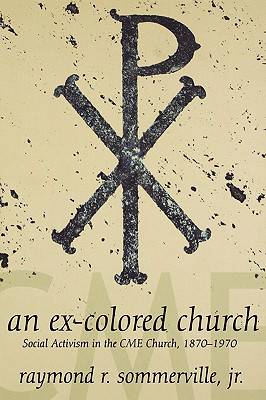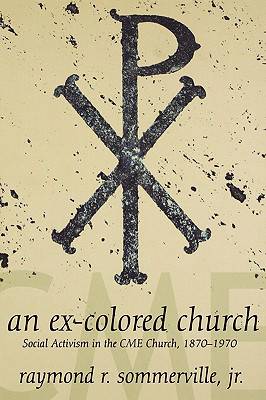
En raison d'une grêve chez bpost, votre commande pourrait être retardée. Vous avez besoin d’un livre rapidement ? Nos magasins vous accueillent à bras ouverts !
- Retrait gratuit dans votre magasin Club
- 7.000.000 titres dans notre catalogue
- Payer en toute sécurité
- Toujours un magasin près de chez vous
En raison de la grêve chez bpost, votre commande pourrait être retardée. Vous avez besoin d’un livre rapidement ? Nos magasins vous accueillent à bras ouverts !
- Retrait gratuit dans votre magasin Club
- 7.000.0000 titres dans notre catalogue
- Payer en toute sécurité
- Toujours un magasin près de chez vous
Description
The Christian Methodist Episcopal Church was an important part of the historic freedom struggles of African Americans from Reconstruction to the Civil Rights movement. This fight for equality and freedom can be seen clearly in the denomination's evolving social and ecumenical consciousness. The denomination's very name changed from "Colored" to "Christian" in 1954, but the denomination did not join the struggle late. Rather, the CME was a critical participant from the days following the Civil War. At times, the Church was at odds with their white Methodist counterparts and in solidarity with other African-American denominations on issues of racial desegregation and the role of social protest in religion.Raymond Sommerville's important book discusses the relationship between Martin Luther King, Jr. and the Southern Christian Leadership Conference and the CME. While King and others received most of the headlines during the Civil Rights Era, the CME proved to be involved at all levels and equally important in all they did. With its strategic location in the South and its long history of ecumenical involvement, the CME Church emerged as a leading advocate of ecumenical civil rights activism. Previous interpretations asserted that the CME was apolitical and accomodationist or that it was more progressive than it was. Sommerville presents a more nuanced account of how a church of largely former slaves emancipated itself from the constraints of white Methodist paternalism and Jim Crow racism to emerge as a progressive force of racial justice and ecumenism in the South and beyond. Sommerville examines major centers of the CME -- Nashville, Birmingham, Memphis, Atlanta -- and selected leaders inthe South in charting the gradual metamorphosis of the former CME as a largely nonpolitical body of former slaves in 1870 to a more politically active denomination at the apex of the modern Civil Rights movement in the 1960s.
Spécifications
Parties prenantes
- Auteur(s) :
- Editeur:
Contenu
- Nombre de pages :
- 260
- Langue:
- Anglais
- Collection :
Caractéristiques
- EAN:
- 9780865549036
- Date de parution :
- 01-01-04
- Format:
- Livre broché
- Format numérique:
- Trade paperback (VS)
- Dimensions :
- 152 mm x 226 mm
- Poids :
- 381 g

Les avis
Nous publions uniquement les avis qui respectent les conditions requises. Consultez nos conditions pour les avis.






